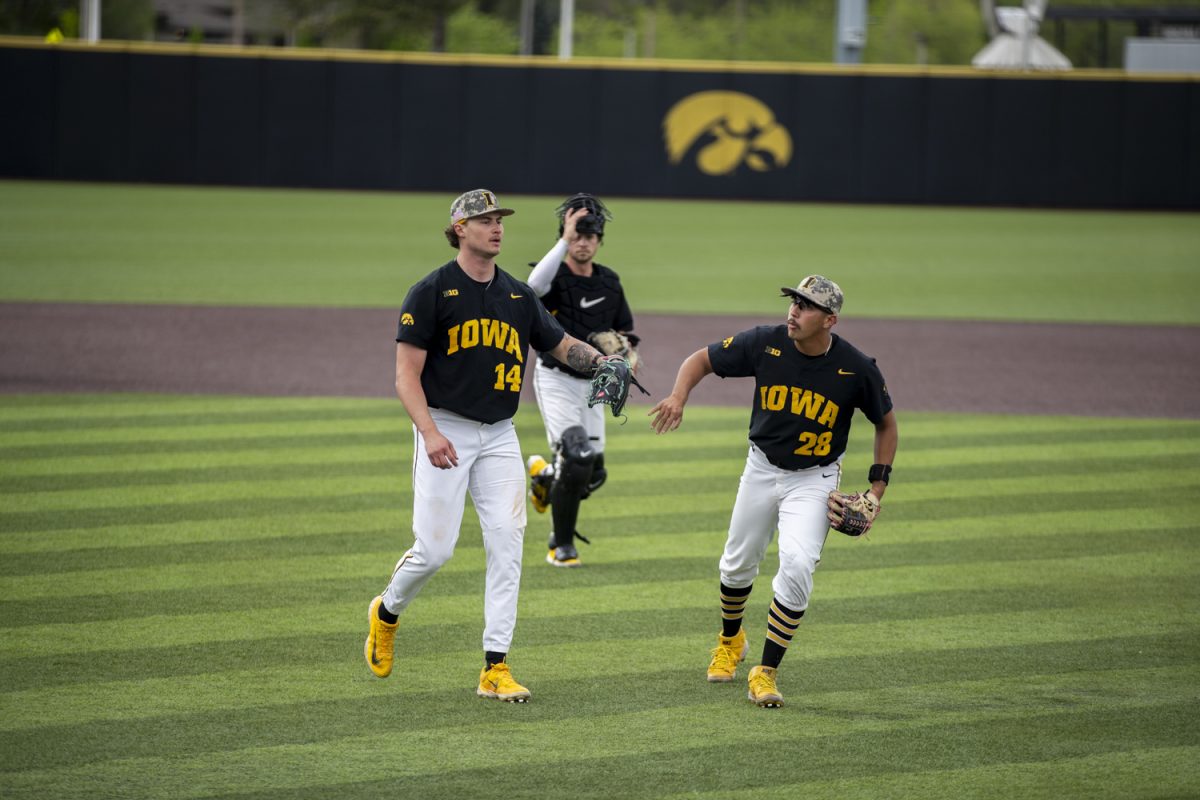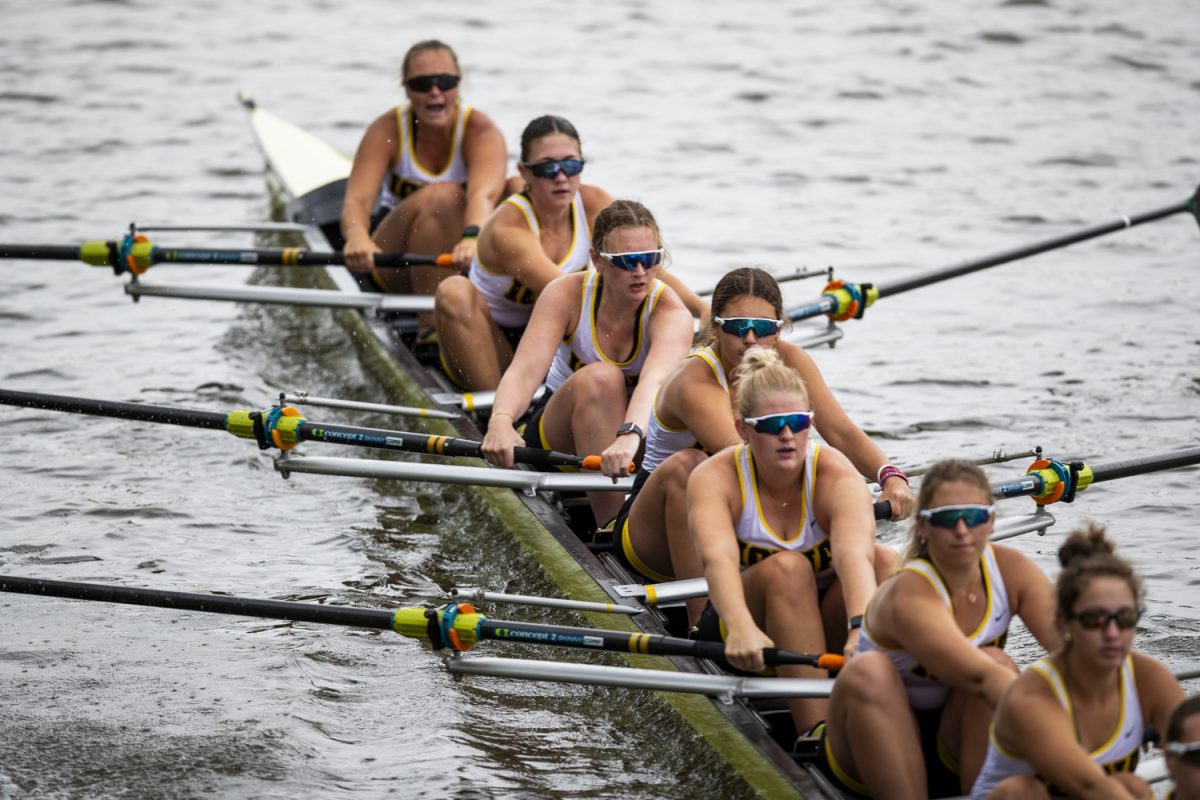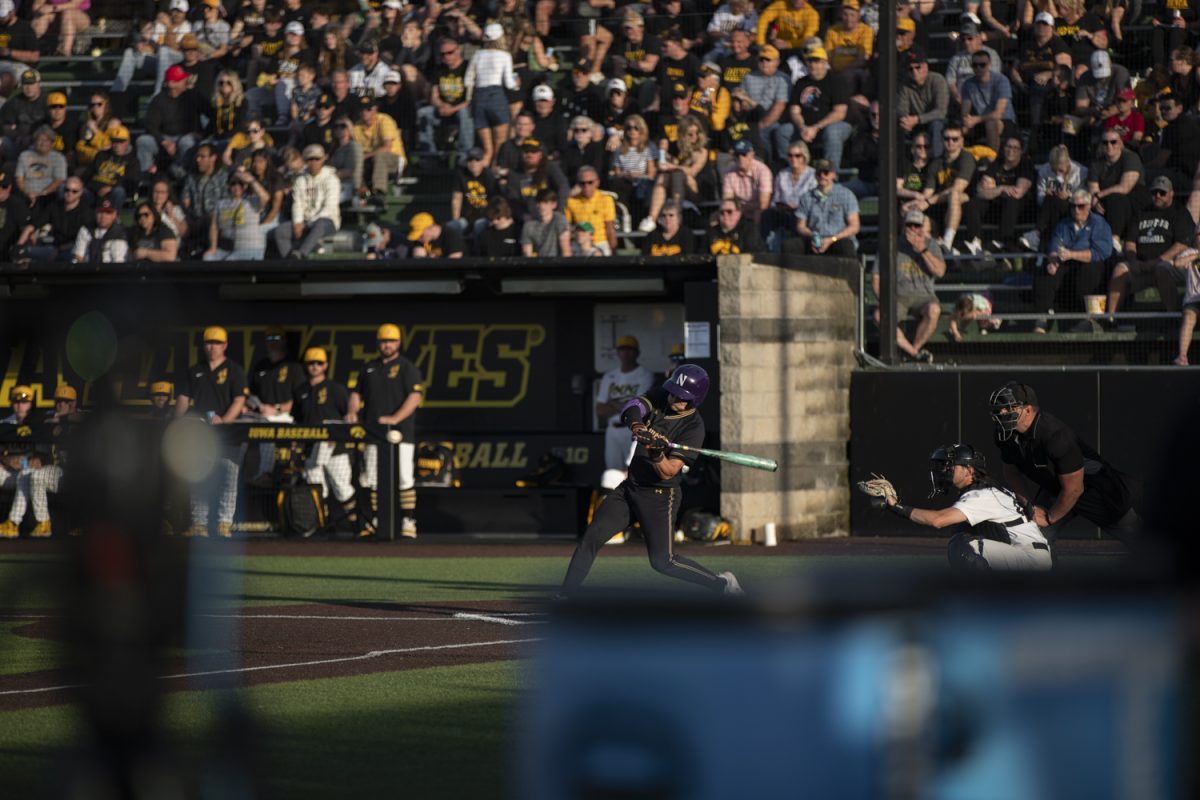Ndamukong Suh
The Heisman Trophy is supposed to be awarded to the best player in college football.
While Mark Ingram had a terrific season, it doesn’t compare to the dominance of Nebraska defensive tackle Ndamukong Suh.
It’s unfortunate that the “skill” positions are considered the most prestigious players. There is no way the most prolific player in college football is year in and year out a quarterback, a wide receiver, or a running back.
The Nagurski and Outland trophy winner’s 82 tackles ranks first amongst defensive tackles, and his 12 sacks are tied for third best in the nation.
Suh’s four-and-a-half sack performance against fellow Heisman candidate Colt McCoy is a Big 12 championship game record.
Only one defensive player has ever won the Heisman — Michigan’s Charles Woodson, who was also a kick returner. This was the year for a defensive player to win because of the lackluster play on the offensive side of the ball.
Former Iowa running back Shonn Greene put up more rushing yards in 2008 than both Toby Gerhart and Mark Ingram, and he wasn’t even invited to the Heisman ceremony last year.
Colt McCoy lost his shot at the trophy after throwing three picks and nearly giving the Big 12 championship game to Nebraska in the final seconds.
Tim Tebow had no business even being nominated for the award. His stats were not deserving of being mentioned as one of the best in college football.
He was 57th in completions, 49th in passing yards, tied for 39th in passing touchdowns, and 61st in total rushing yards.
To put that in perspective, Middle Tennessee State quarterback Dwight Dasher ranks higher in all of these categories.
It’s time that defensive players got the recognition they deserve. But maybe it’s better that Suh didn’t win. He avoided the Heisman curse.
Look what the trophy did for Eric Crouch. He never took a snap in the NFL and now runs a playground-equipment business.
— by Mitch Smith
Mark Ingram
He was Alabama’s first Heisman Trophy winner, and he totally deserved it.
Mark Ingram had the best season of anyone in a major conference, and he was the best player on the best team.
Sounds like a good start.
Let’s address each of the non-winners one at a time, with the exception of “Jesus” Tebow and his pity invitation.
First there was Ndamukong Suh, the underdog tackle from Nebraska. While he did have the best defensive season of anyone, what separates him from past great tackles who did not garner an invitation?
He didn’t score touchdowns on defense. He played in the weak Big 12 North, and he played for a team that lost to Iowa State.
Yikes. Next competitor.
Colt McCoy, the cowboy named gunslinger from Texas, submitted another great season for the burnt orange. Yet, he had Jordan Shipley to pitch and catch to in a great coach’s system.
McCoy also got dominated by Suh who, as voters established, did not win the award, either.
This leaves Toby Gerhart. It was the closest Heisman race ever, but Ingram had more votes, and more first-place votes than his West Coast competitor.
Gerhart had more yards and touchdowns in a run-centric offense, but on 62 more attempts than the sophomore Ingram.
The SEC champion had a better yards per carry average, with 6.2 compared with 5.6, and if he had the 311 attempts that Gerhart had, would have gained an extra 384 yards — putting him as a mortal lock for the Heisman.
Keep in mind Gerhart’s statistics were all gained on a strength of schedule of 64, while Ingram’s Crimson Tide faced the fourth-best schedule in the country.
Finally, look at the records of the two teams. While Ingram is playing in the national championship, because of a game he took control of in the SEC championship, Gerhart can watch the game from home.
— by Ian Martin
C.J. Spiller
C.J. Spiller not only should have been invited to New York City, he should have won the Heisman Trophy.
Instead, he finished sixth in votes, once again demonstrating that Heisman voting is whack.
That was despite his coming off his best performance. But then again he didn’t cry his eyes out because he lost that game, either. Maybe he should have.
Nonetheless, in the ACC championship game, Clemson’s do-it-all back darn-near carried his Tigers to an Orange Bowl berth. He recorded more than 300 all-purpose yards and accounted for four of Clemson’s five touchdowns in its 39-34 loss to Georgia Tech.
But big-time performances in big-time games have been the norm for Spiller all season long.
The Tigers rode him to a huge 40-37 overtime upset victory at Miami, which ranked 10th in the nation at the time. Not only did he carry the ball for more than 80 yards, he also caught the ball for more than 100 yards and a score.
Did I mention he returned a kick for a touchdown?
No defense was “Spill” proof in ’09.
When Clemson met TCU on Sept. 26, it lost, 14-10. Who scored the Tigers’ only touchdown? Spiller.
He didn’t pay much attention to the Horned Frogs’ vaunted defense. Despite the fact that TCU could key in against Spiller, he tallied up over 200 all-purpose yards. No big deal.
If you want to talk about career achievements — which is the primary reason Colt McCoy and Tim Tebow even finished as top five vote-getters — Spiller’s got those too.
His opening kickoff return touchdown against rival South Carolina on Nov. 28 put him in elite company. He became just the fifth player in Football Bowl Subdivision history to total more than 7,000 all-purpose yards, and that return was his seventh career kickoff TD return — a record.
I’m sure Spiller isn’t too bitter about being left out. He’ll be, at worst, the second best pro player of the top six vote-getters. Plenty of accolades will be waiting for Spiller at the next level.
— by Jordan Garretson
Toby Gerhart
This was not the year of the quarterback.
And in turn, it was obvious this year’s Heisman Trophy would not go to a signal-caller.
That automatically ruled out Florida’s Tim Tebow and Texas’ Colt McCoy, vaulting Nebraska defensive tackle Ndamukong Suh, Alabama running back Mark Ingram, and Stanford running back Toby Gerhart into the national spotlight — the brightest of those three stars being the 6-1, 235-pound running back from Stanford.
The Doak Walker award winner ran for the most yards (1736) and touchdowns (26) in the Football Bowl Subdivision, more than qualifying himself as the best player in the country.
Part of the Heisman process is deciding the effect a player has on his team. No one had more of an effect than Gerhart.
Coming into the Cardinal roster as a freshman, Stanford was a one-win team without much of a personality.
This year, that group of losers defeated No. 9 USC, No. 8 Oregon, and No. 24 Washington.
The Heisman meant to be given to the singular best player in the country, no matter how the team does. In giving the award to Ingram, the committee lost sight of individual performance and instead focused on the performance of a team.
Gerhart might well be one of the highest-drafted running backs in next April. It’s just too bad the team didn’t go undefeated.
— by Jake Krzeczowski
Colt McCoy
Colt McCoy has the perfect quarterback name. Or cowboy name. Or 3 Ninjas name.
But for a second-straight season, the Texas signal-caller couldn’t come up with college football’s most prestigious hardware.
It’s a shame, too.
He has been brilliant throughout his illustrious career with the Longhorns, throwing for 13,244 yards and 112 touchdowns. His senior season was no disappointment, either — Texas went undefeated and will play SEC champion Alabama for the BCS championship.
As Chazz Michael Michaels would say, McCoy’s stats this year are equally mind-bottling.
He threw for more than 3,500 yards and 27 touchdowns while connecting on more than 70 percent of his throws.
His accuracy has always been his strongest asset. He’s never finished a season throwing below 65 percent, and last year he hit receivers at an unbelievable 76.7 percent clip.
He has been a beacon of consistency throughout his career, which carried over to an impressive and Heisman-worthy final season.
I’ll admit Toby Gerhart was a solid runner-up for the award. He had a great season, and if not for Stanford’s losses, may have come up with the vote.
But Mark Ingram? He also had a good year for Alabama but certainly not one worthy of being called the best player this college football season.
Heck, Shonn Greene had more yards and touchdowns last year, and he didn’t snag first place.
I can only take solace in this year’s Heisman voting knowing that Tim Tebow finished dead last.
— by Matt Schommer
Tim Tebow
Most people didn’t believe Tim Tebow deserved to be a Heisman Trophy finalist, but he should have won it.
The Heisman rarely goes to the best player in college football — rather the most valuable or most important one.
Michael Crabtree could have qualified as the best player last year. This season I would argue Nebraska’s Ndamukong Suh would be considered the best pure player.
In 2004, Matt Leinart won, when Jason White and Alex Smith clearly had better years. In 2006, when Troy Smith won, Brady Quinn and Adrian Peterson also had better years.
But Smith and Leinart went to title games. Sound familiar?
Now, I’m not going to say Tebow was college football’s best player this year, because he was not. Statistics will tell you that, and in that case, Toby Gerhart would have won.
But Tebow is the most valuable player, which is usually who wins.
It’s odd that before the Florida-Alabama SEC championship game, Ingram was a long shot to win the Heisman. Then Ingram rips off 189 yards and beats Florida on national television, and now Tebow is not any good, and Ingram is top dog.
We’ve all seen Tebow play; in fact, players, coaches, and teams in general go out of their way to stop this guy.
We all love to hate him for some weird reason. Don’t you think the rest of college football feels the same way?
My point is, when a team is trying its absolute hardest to shut a player down, the game’s a bit tougher, therefore the numbers meant more this year than ever.
Give the guy some credit. He didn’t have a guy named Percy Harvin or Louis Murphy stretching the field for him this season, so he had to do the work himself.
Tebow wasn’t just the quarterback, but the running back. In fact, he only had five less rushing touchdowns than Ingram, and he also threw for 18 scores.
Even on his own team, he had more than 200 carries when no running back even had 100.
Tebow deserved it this year more than any. I don’t know any other team that relies more on one player than the Gators.
— by Patrick Rafferty






